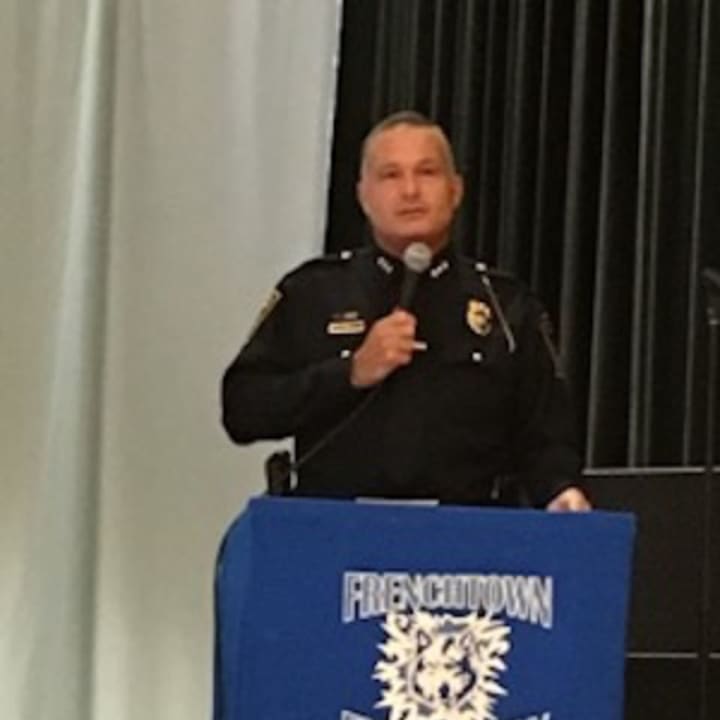Co-chairing a meeting at Frenchtown School on community policing with George Mintz, president of the Greater Bridgeport Branch of the NAACP, Lombardo described several initiatives his department is implementing to make policing “fair and impartial.” The meeting was held at a time when police and community relations are making headlines after the deaths of several African-American men at the hands of officers as well as attacks — some fatal — on officers in several U.S. cities.
Mintz said, “It’s important to have this dialogue ... it builds better communities.”
He told the nearly 50 people in attendance that the NAACP is “our nation’s oldest and largest grassroots civil rights organization.” It was established over 100 years ago in response to “too much injustice to the African-American community.”
Lombardo got to the heart of the community policing issue at the Wednesday meeting, saying police departments have “witnessed many challenges, the root cause of which is trust in the police.”
He is employing two types of programs to respond. One is proactive, non-enforcement programs — making his department more available to the community by putting officers on bicycles; holding park, walk and talk actions; setting up a new station at Trumbull Mall; adding three Student Resource Officers in the schools; and, in September, holding Coffee with a Cop at a local coffee spot.
His goal? “Get people comfortable talking to police.”
The other, the reactive, is addressed through the Department of Justice’s Fair & Impartial Policing program. Officer Tim Fedor is the department’s trainer for this “data-based” program. it teaches individual officers to “understand their implicit biases,” and it helps to “define expectations on both sides of a police-civilian engagement.”
Mintz then asked the group for “solutions that will produce a better climate with the people in blue.”
Crystal Mack, a longtime Trumbull resident, said people need to learn the “humiliation and dehumanization” that is black history, and, at the least, look at Black America through the eyes of movies, including "Roots," "12 Years A Slave" and "The Butler."
"When we know better, we’ll do better,” she said.
After a number of other points were discussed, Mintz summed up items his organization will work on to prepare for a next meeting, including recruiting, putting officers on the street, improving cultural education, and even deciding whether military-looking uniforms worn in use-of-force situations facilitate healthy police-community engagement.
Reflecting of how police departments have progressed in working to understand communities of color, the writer asked Lombardo “If this type of meeting had been held five years ago, how long would it have lasted?”
“Five minutes,” he said, showing how times have changed.
Click here to follow Daily Voice Trumbull-Monroe and receive free news updates.




